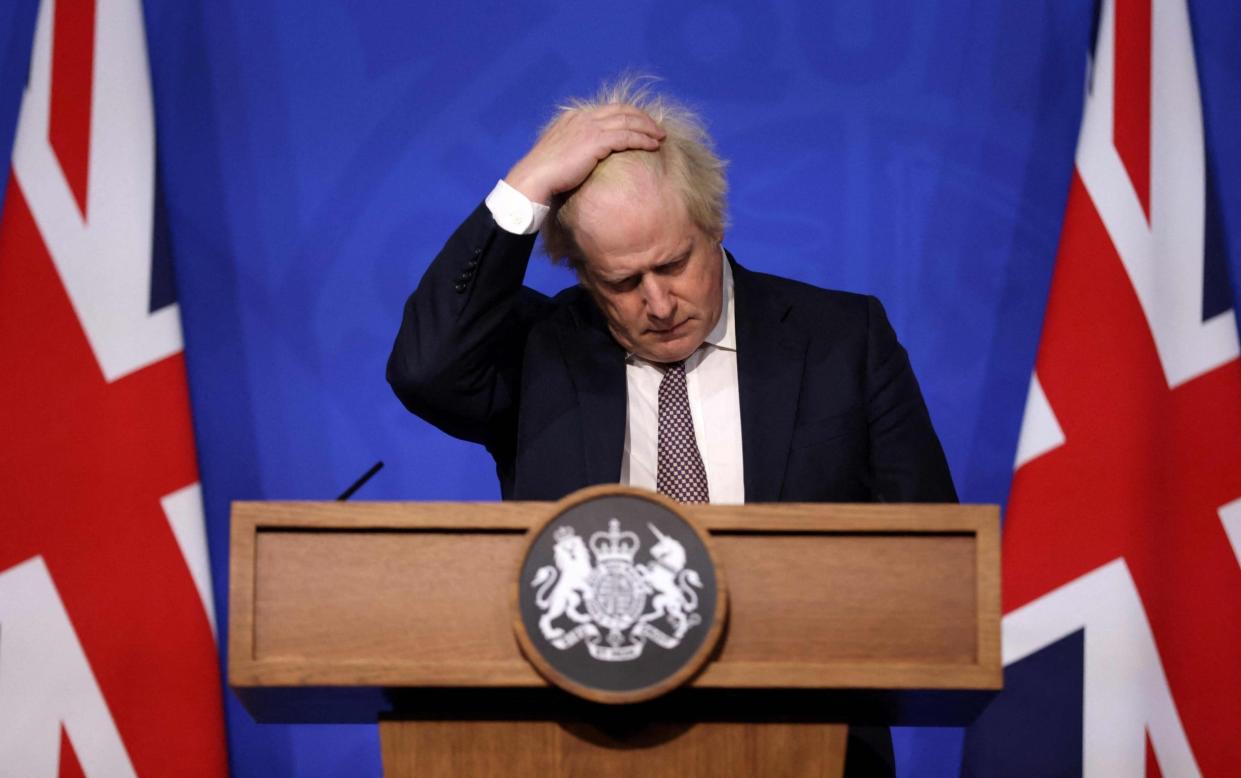Sixty barristers and a £14m annual budget – but Covid Inquiry could still drag on until 2026

The Covid-19 inquiry must publish an interim report before the next election, MPs have demanded, amid speculation that the wide-ranging investigation could last until 2026.
Boris Johnson formally launched the inquiry by agreeing its terms of reference with Baroness Hallett, its chairman, meaning families of the deceased now know what will fall within its scope.
Campaigners welcomed the fact that the inquiry, which is expected to start its public hearings next spring, has been widened to examine the effect of lockdowns on children and their education.
However, there is no guarantee that Lady Hallett will publish any interim findings before the next general election, which must take place by January 2025, only that it will produce interim reports “in a timely manner”.
Layla Moran, the chairman of the all-party parliamentary group on coronavirus, said “public trust” in the inquiry process would be damaged if there was nothing before the next general election to show that “lessons are learned and those responsible [for mistakes] are held to account”.
Lady Hallett, a former Court of Appeal judge, has indicated in the past that she will publish updates throughout the lifetime of the inquiry, but the official start date of the inquiry, which is set at June 28, 2022, was not accompanied by any firm timeframe for updates.

A spokesman for the inquiry said that Lady Hallett had promised the bereaved families that there would be interim reports but “we won’t be influenced by when a general election is”.
Last month, The Telegraph disclosed that documents relating to the appointment of a law firm to help with the inquiry suggest its final report is not expected until at least the end of 2025. The inquiry even has the option to extend the law firm’s contract until October 2026.
This week, Lady Hallett announced she had appointed 49 barristers to act as junior counsel to the inquiry, working under 11 QCs who had already been taken on. Legal costs are likely to top £14 million per year.
Likely to take years, not months
Mr Johnson has agreed to all of Lady Hallett’s recommendations for the scope of the inquiry, meaning it will look into the discrepancies between the impact of the virus on people from different ethnic backgrounds and will also look into long Covid.
The inquiry has set out 37 separate topics that it will examine, suggesting it is likely to take years, rather than months. They include pandemic preparedness; the use of lockdowns, social distancing and face masks; test and trace; the mental health impact of lockdowns; procurement of PPE and other equipment; the policy on care homes and the furlough scheme.
Arabella Skinner, the director of the campaign group UsForThem, said she was “pleased” that the impact on children and education would now be examined - having been omitted from the first draft of the terms of reference - and said the inquiry staff must now “prioritise children in [its] timetable and planning”.
The Race Equality Foundation said it was “immensely relieved” that the inquiry had finally begun after “months of stalling” by Mr Johnson - who originally said the inquiry would begin in spring this year - and welcomed the “positive” move to examine the disparity between the effects of Covid on people from different ethnic groups.
On Sunday, the Covid-19 Bereaved Families for Justice group threatened to bring a judicial review over the Government’s failure to provide a setting-up date for the inquiry.
‘Pitiful’
Following the launch, Hannah Brady, the campaign’s spokesperson, said: “Finally we can begin the process of learning lessons from the awful suffering we’ve endured.
“However, it is pitiful that after six months of inexplicable delays, the Government has finally decided to act just two days after we announced that we were considering a judicial review over their time-wasting.
“It goes to show that they were simply delaying the process for as long as they could get away with, and there are going to have to be serious consequences if valuable evidence has been lost as a result.
“Baroness Hallett is now going to have to get the process moving as quickly as possible so that lessons can be learned ahead of future waves.”
The Inquiry’s 60 barristers will now begin the work of researching the pandemic response and gathering documentary evidence before the process of taking evidence from live witnesses can begin.
Lady Hallett said: “My team and I are ready to begin the inquiry’s work at speed and in earnest. The inquiry will be run independently, fairly and openly, and those who have suffered significantly during the pandemic will be at the heart of the inquiry’s work.”

